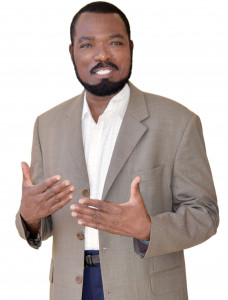Benin’s regrettable absence from the global communication
BY SOUMANOU SALIFOU

I was inspired the following remarks by an article published in the issue #6805 of the daily Beninese newspaper La Nation dated Monday, 21 July, an article published on the heels of the ground-laying congress of the Network of Pan-African Communicators, Rezopanacom, which aims at “restoring the image of Africa through communication.” This is not a new fight. Moreover, a negative image of Africa on the world scale rubs us all the wrong way, not just our leaders. But my younger fellow-reporters of the Rezopanacom seem to grab the wrong end of the issue by stating the need to “counterbalance the pervasive, negative communication about Africa.”
My remarks will be grounded in my nearly quater-of-a-century experience on the matter as the founder and publisher of “The African” magazine, the premier, and, to this date, the sole African magazine published in the U.S. (see Google, Yahoo! or Bing, three of the largest search engines in the world.) The primary objective of “The African” since 1994 when I founded it after trading the microphone of the Voice of America for my computer following eight years of service crowned with awards, is to promote a positive image of Africa essentially in the United States.
Before I address the issue of Benin’s regrettable absence today from the global communication, please allow me to make a little detour.
How can the African journalist “counterbalance the pervasive, negative communication about Africa” if his mission, as elsewhere in the world, it to deliver the information, not manufacture it? Gone are the days when some African leaders used to pay dozens of millions of CFA francs for tailor-made reporting in the major international publications. Nobody believes this stuff anymore. Another reality to reckon with: as long as some of our leaders will continue to show contempt for their people, nothing can stop the foreign press from talking about it, these days spontaneously online—a form of communication that is outpacing the paper version.
Let’s now talk about Benin, an unquestionable model of democracy in Africa, the country that initiated the national conference copy-pasted by several other democracy-starved countries (Togo, Zaire, Mali, etc) without achieving the same result. This country where democratic succession is real and peaceful is totally absent today from the global communication, especially in the United States.
I was frustrated to see Senegal rewarded by the National Democratic Institute during a gala in Washington on 6 December 2004 through the communication and marketing genius that is President Abdoulaye Wade, for its “prowess” in terms of democracy. It’s so obvious such honor should have been bestowed on Benin. Unfortunately, Benin’s leaders at that time, like the current ones, were not aware of the need to show the rest of the world their ongoing efforts to advance democracy, the economy, and more. As my idol John H. Johnson, the founder of Ebony—the premier black magazine published in the United States—used to say: If we don’t define ourselves, others will define us as they please.
But Benin hasn’t always been like this. In the early years of the democratic renewal, it had a shining image in the United States—thanks to a sustained communication effort—that was the pride of all of us who have chosen this great nation as our second homeland.


